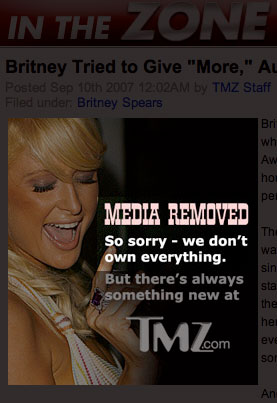 The past few days, I've been mired deep in metadata hell, getting my images prepped to be distributed to the masses from wence they came from their analog prison. It's now 4:30 am, and I've just finalized 1,500 images, all of which could have benefited from the latest travelling seminar series from HP and Apple, aptly titled:
The past few days, I've been mired deep in metadata hell, getting my images prepped to be distributed to the masses from wence they came from their analog prison. It's now 4:30 am, and I've just finalized 1,500 images, all of which could have benefited from the latest travelling seminar series from HP and Apple, aptly titled:
'Images - Organize. Edit. Print'.
Brent Haley, who's earned his stripes at Adobe, Apple, and yes, the mystery that is Pantone, is travelling around the country over the next few months spreading the good gospel that is "The Ultimate Seminar For The Working Photographer".
To that end, the "Images" tour has discerned that you, dear reader, are a solid audience to reach with the message, and announcement, so please welcome them as our newest advertister by clicking over, and checking out more about the seminar, and when they're coming to a town near you. Currently, they're slated for Boston, SF, San Diego, Culver City, Miami, and New York between 10/23 and 12/6, with more cities coming online in the near future.
Oh, and did I mention, it's ** FREE ** ?!?! That's just how Apple and HP roll.
(Continued after the Jump)
Please post your comments by clicking the link below. If you've got questions, please pose them in our Photo Business Forum Flickr Group Discussion Threads.
[More: Full Post and Comments]
![]() Well, you have John Paczkowski, over at Digital Daily to either thank, or blame, for this idea. JP does a daily video post going over what he's written each day, so, I thought, well, perhaps I'd do one once a week, and here it is. Hit me with comments/criticisms in the comments section!
Well, you have John Paczkowski, over at Digital Daily to either thank, or blame, for this idea. JP does a daily video post going over what he's written each day, so, I thought, well, perhaps I'd do one once a week, and here it is. Hit me with comments/criticisms in the comments section! The past few days, I've been mired deep in metadata hell, getting my images prepped to be distributed to the masses from wence they came from their analog prison. It's now 4:30 am, and I've just finalized 1,500 images, all of which could have benefited from the latest travelling seminar series from HP and Apple, aptly titled:
The past few days, I've been mired deep in metadata hell, getting my images prepped to be distributed to the masses from wence they came from their analog prison. It's now 4:30 am, and I've just finalized 1,500 images, all of which could have benefited from the latest travelling seminar series from HP and Apple, aptly titled: I appreciated how highly regarded photographer
I appreciated how highly regarded photographer  Today's Speedlinks.
Today's Speedlinks. I stumbled across this graphic today, and it got me thinking about rights on the web. Here, TMZ has a standard graphic that they swap in when their rights end for a particular piece of video, and, more importantly, they say "so sorry - we don't own everything". That's a perfect example of how things should occur.
I stumbled across this graphic today, and it got me thinking about rights on the web. Here, TMZ has a standard graphic that they swap in when their rights end for a particular piece of video, and, more importantly, they say "so sorry - we don't own everything". That's a perfect example of how things should occur.